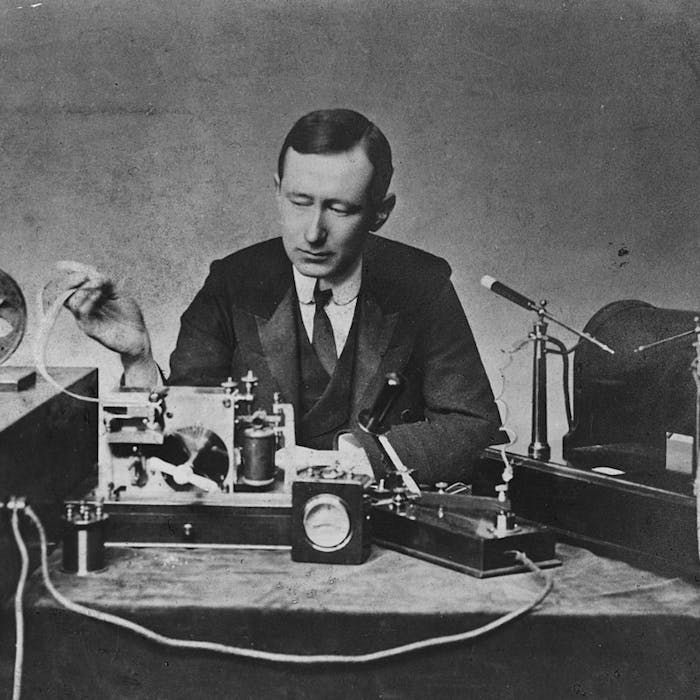
Marconi - the radio entrepreneur who did much of his research in Britain
Guglielmo Marconi was an inventor from an Italian and Irish background, who completed much of his research into wireless communication in Britain, and who is widely regarded as the inventor of radio.
Marconi was born into the Italian nobility in 1874. His mother was from the Irish Jameson whiskey family. Consequently Marconi was bilingual in English and Italian. When his early research into radio waves as a method of communication showed promise, Marconi approached the Italian government. His letter was not answered and filed under "Lunatic Proposals" by the relevant Minister. The young Marconi hoped to find a more receptive audience for his ideas in Britain, and travelled to London in early 1896 at the age of 21.
He quickly found interested backers, including the British Post Office. Within a year Marconi was broadcasting up to 12 miles and had applied for his first patents. A year later, he set up a wireless station on the Isle of Wight that allowed Queen Victoria to send messages to her son Prince Edward aboard the royal yacht.
In 1897 Marconi received his first patent in England, and founded the London-based Marconi Telegraph Company in 1899. Though his original transmission travelled a mere mile and a half, on December 12th, 1901, Marconi sent and received the first wireless message across the Atlantic Ocean, from Cornwall to a military base in Newfoundland. Marconi refined his invention with experiments from several spots around Britain, and then at Clifden on the west coast of Ireland.
As shipping companies realised the radio telegraph’s usefulness for passenger communication, navigation reports and distress signals, Marconi Company radios—operated by trained “Marconi Men”—became standard equipment. When RMS Titanic struck an iceberg on April 14th, 1912, its Marconi operator was able to summon RMS Carpathia to the scene to pick up 700 survivors. The subsequent enquiry into the disaster, and Marconi's visit with a reporter to the surviving Marconi operator from the ship, increased the popularity both of Marconi and his radios. Marconi had, in fact, been offered free passage on the Titanic's maiden voyage, but had declined.
Marconi was involved in the founding of the BBC in 1922. He died in Rome in 1937 at the age of 63.
Further reading
Links to external websites are not maintained by Bite Sized Britain. They are provided to give users access to additional information. Bite Sized Britain is not responsible for the content of these external websites.
